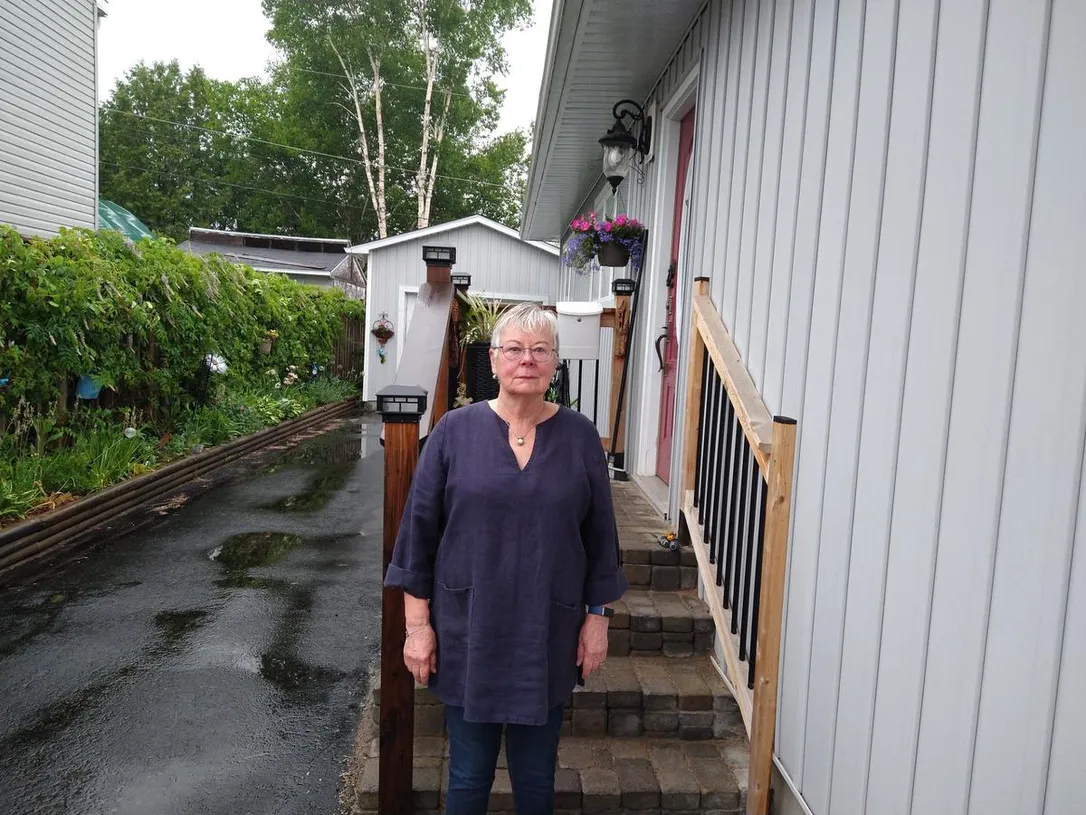
Federal agency says the problem falls outside its mandate
Three homeowners in Elliot Lake are taking the Canadian Nuclear Safety Commission (CNSC) to Federal Court over its recent decision to not order the removal of alleged radioactive waste from their properties.
“I never thought that as I was retired, I would actually have to fight my own government so hard for something which should be a moral imperative,” said Jennifer Carling, a 74-year-old Elliot Lake resident among the homeowners who have discovered dangerous radiation levels in their houses.
The Investigative Journalism Bureau and Toronto Star first reported last month that up to 60 homes could be sitting on top of radioactive “waste rock” allegedly used as infill when the houses were built, according to documents compiled by the Canadian Environmental Law Association (CELA) and Blaise Law.
A June 2023 decision by the CNSC said the homeowners are responsible for dealing with the waste rock, which comes from closed-down uranium mines that helped develop atomic bombs during the Cold War.
The waste rock “contains naturally-occurring nuclear substances,” the CNSC says, but it was “never chemically processed.” The waste rock is therefore “not considered radioactive waste” and falls outside of the regulator’s mandate.
Lawyers at CELA and Blaise Law, who are representing the homeowners, say that requirement was never part of the law that governs federal responsibility over mine waste.
“This finding is unreasonable, unintelligible, and unsupported by any evidence,” reads a notice of application for judicial review submitted to the Federal Court.
The regulator’s interpretation would reduce what the CNSC can do about waste from uranium mines, says Jacqueline Wilson, a lawyer for CELA.
The CNSC “is the only body that’s mandated with oversight of this whole nuclear lifecycle, including to protect the public and human health,” said Wilson. “It’s critical that that oversight role isn’t lessened.”
The General Nuclear Safety and Control Regulations exempt “naturally occurring nuclear substances” from the Nuclear Safety and Control Act, which established the CNSC, unless those substances “are or have been associated with the development, production or use of nuclear energy.”
CELA and Blaise Law argue that the uranium waste rock does not fall under that regulatory exemption.
Residents are concerned about how living on top of nuclear waste could be harming their health.
The average levels of radon – an odourless gas that is the second-leading cause of lung cancer – in the houses range from more than double the federal safety guideline to more than four times, the notice of application alleges.
“We understand that elevated levels of radon in the environment can be very concerning,” the CNSC said in a statement. “The CNSC has encouraged the home owners to contact Health Canada’s Radiation Protection Bureau to get information on appropriate management of radon.”
A report by a gamma radiation expert also found higher radioactivity in the homes than in the surrounding areas.
The residents have been exposed to doses of radiation that exceed radiation protection regulations by eight to 15 times, according to the notice of application.
“I can’t avoid going out my front door,” Carling says, “and that’s where the gamma radiation is coming from.”
The regulator, however, maintains that the mine waste used in the building of the houses is “naturally radioactive at levels consistent with the region.”
That response is “pitiful,” Carling says. “Prove it. Come and test our properties.”
“The longer we live with this, the longer we are potentially exposed to carcinogens,” Carling says. “None of us are doing this for our own benefit. This is for future generations living in our houses and other houses around the area.”